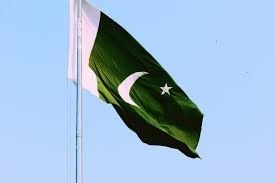Islamabad, (Asian independent) Pakistan is among Asia’s worst country in terms of struggle to handle its consistent economic fall with Islamabad dodging bullets of a complete economic meltdown.
With the current dire state of the crippling economy, Pakistan has now become the most expensive country with the highest living cost in the whole of Asia.
A latest report by the Asian Development Bank (ADB) has painted a scary, glum and worrisome picture of Pakistan’s economic growth.
A report by the ADB has maintained that living cost in Pakistan is the highest in Asia with at least 25 per cent inflation rate and an economic growth pace, expected to grow at a meagre 1.9 per cent, which is the fourth lowest in the region.
The report also paints a scary picture for the next fiscal year, projecting inflation rate to hover around 15 per cent and growth rate at 2.8 per cent, making both forecasts as the highest among 46 countries and fifth lowest respectively.
The ADB report, keeping Pakistan’s inflation rate at 25 per cent for the current fiscal year has made Pakistan the most expensive nation in Asia.
It is pertinent to note that Pakistan used to be the country with highest living cost in South Asia earlier before being pushed further into financial depression and economic stress, making it the most expensive nation in the whole of Asia.
The ADB report negates the projections of Pakistan’s central bank, The State Bank of Pakistan, which had set the inflation target at 21 per cent for the current fiscal year, a target which is going to be missed despite wreaking colossal losses in the share of 22 per cent interest rate.
“During the current fiscal year, the country’s economic growth rate might remain at 1.9 per cent — the fourth lowest after Myanmar, Azerbaijan and Nauru,” the ADB report said.
The ADB report comes at a time when Pakistan is going through its worst possible nightmare of aggravating economic crisis.
Islamabad has been in a visible recession phase for some time now, pushing millions of its citizens below the poverty line at a very fast pace.
The World Bank report last week revealed that about 98 million people in Pakistan are already living a poor life in Pakistan, adding that another 10 million more people might fall into the poverty trap.
Even though ADB reports have been optimistic about Pakistan’s economic revival and has projected figures closer to the country’s official forecasts; but its latest report has detailed on how Pakistan would continue to face serious challenges from new external financing requirements and the persisting old debt.
The matter will further intensify by tough global monetary conditions.
While Pakistan maintains that it is working up macroeconomic policies to handle the economic crisis; ADB report maintains that present political uncertainty would remain a major and key risk to the stabilisation and sustainability of any reform effort.
“On the external front, the potential supply chain disruptions from escalation of the conflict in the Middle East negatively affect the country’s economy. Pakistan’s large external financing requirements and weak external buffers, disbursement from multilateral and bilateral partners remained crucial,” the ADB report added.
“Further IMF support for a medium-term reform agenda would considerably improve market sentiment and catalyse affordable external financing from other sources,” the report said.
The ADB report should ring emergency alarm bells across quarters in Pakistan as it comes at a time when Federal Finance Minister Muhammad Aurangzeb is to meet the IMF Managing Director (MD) Kristalina Georgieva in Washington with a request for a new bailout package.
But, the meeting is also expected to be another challenge with pre-conditions put on the table by the IMF.
“There are very important issues to be solved in Pakistan. The tax base, how the richer part of the society contributed to the economy, the way public spending is being directed, and creating a more transparent environment,” the IMF MD Kristalina Georgeiva said while talking about Pakistan.









